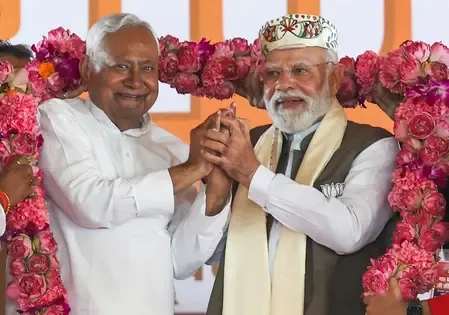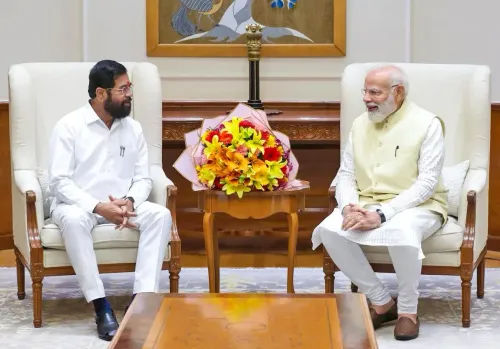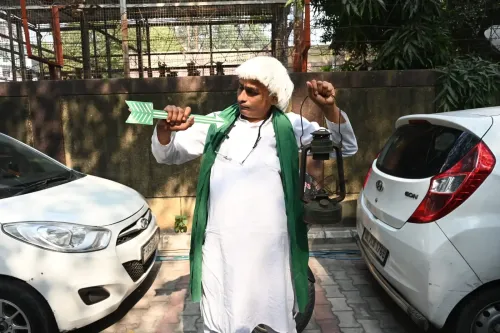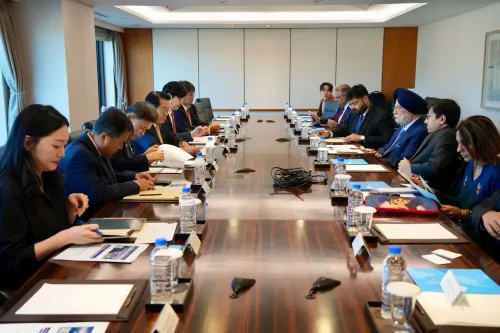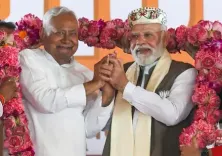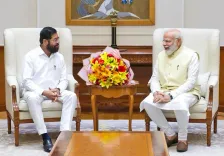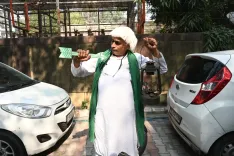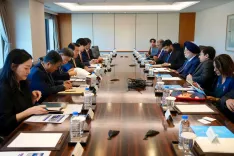Is Bangladesh Facing an Islamist Coup as Salafist Groups Unite?

Synopsis
Key Takeaways
- Bangladesh's unity of Islamist groups poses serious risks to democracy.
- Protests erupting over government decisions indicate rising discontent.
- The influence of the ISI complicates the political landscape.
- Radical groups are strategizing for potential attacks.
- International intervention is deemed necessary for stability.
New Delhi, Nov 14 (NationPress) Bangladesh is currently experiencing a troubling situation as an increasing number of Islamist factions are uniting to advocate for the enforcement of more severe laws within the nation.
Demonstrations have erupted following the decision of the Muhammad Yunus-led interim government to retract its hiring of music and physical training educators for public primary schools.
A coalition of several extremist Islamist groups has gathered to oppose this action, labeling the recruitment for such positions as un-Islamic.
Officials indicate that the Yunus government's choice to lift the ban on the Jamaat has resulted in unforeseen consequences. They assert that Yunus misjudged the circumstances, granting excessive freedom to the Jamaat.
It is widely acknowledged that the Jamaat operates under the control of the ISI. The alarming reality is that various radical entities, such as Hefazat-e-Islam, are collaborating with the Jamaat to push for the establishment of extreme Islamic laws.
Since Sheikh Hasina's removal, Bangladesh has spiraled into turmoil. The radical Islamic factions have seized control, and the situation is exacerbated by the influence of the ISI.
At the instigation of these groups, Yunus allowed for greater engagement with Pakistan, consequently permitting access to maritime zones and easing visa restrictions for Pakistani nationals.
Observers of Bangladesh politics suggest that the nation is undergoing an Islamist counter-revolution.
Currently, the scenario appears grim. If unresolved, the situation in Bangladesh could alter the political landscape of South Asia.
Officials assert that the turmoil in Bangladesh is not merely a spontaneous reaction. Similar to the coup in August 2024, this situation is also a meticulously orchestrated plot.
The ISI is endorsing such plots by supporting organizations like Hefazat and Jamaat. While these groups aim to dismantle democracy, the ISI has enlisted terrorist organizations such as Harkat-ul-Jihad Islami (HuJI) and Jamaat-ul-Mujahideen Bangladesh (JuMB) to conduct operations within India. The ISI's strategy is to create conditions so volatile that the turmoil spills over into India.
A form of radical Islam is being imposed on both political and security levels. Terrorist groups are planning large-scale infiltrations into India with the intent of executing attacks.
Politically, there is an escalation of violence directed at minorities. Numerous temples have been attacked, all part of a coordinated effort.
Moreover, a multitude of social media accounts have been established to disseminate hatred towards India and minorities within Bangladesh.
Many posts advocate for the eradication of non-believers and call for the implementation of Sharia law in the nation. Additionally, there are alarming messages promoting beheadings in a manner reminiscent of Hamas.
Indian intelligence agencies report that following Hasina's departure from power, the ISI rapidly ensured that Salafist organizations in Bangladesh and Pakistan closely coordinated efforts. These groups are at the forefront of the Islamist coup, according to officials.
The objective appears to be to follow the Iranian model, where Bangladesh could be governed by a supreme leader. Indian agencies have also uncovered information indicating that over 8,000 young people are being trained in various locations across the country to form an Islamic Revolutionary Army (IRA).
This initiative is expected to mirror Iran’s Islamic Revolutionary Guard Corps (IRGC), according to Indian officials.
Intelligence agencies suggest that unless there is significant intervention, hope for Bangladesh's recovery is dim. For the nation to return to stability, it is crucial to conduct elections and prevent Pakistani interference.

